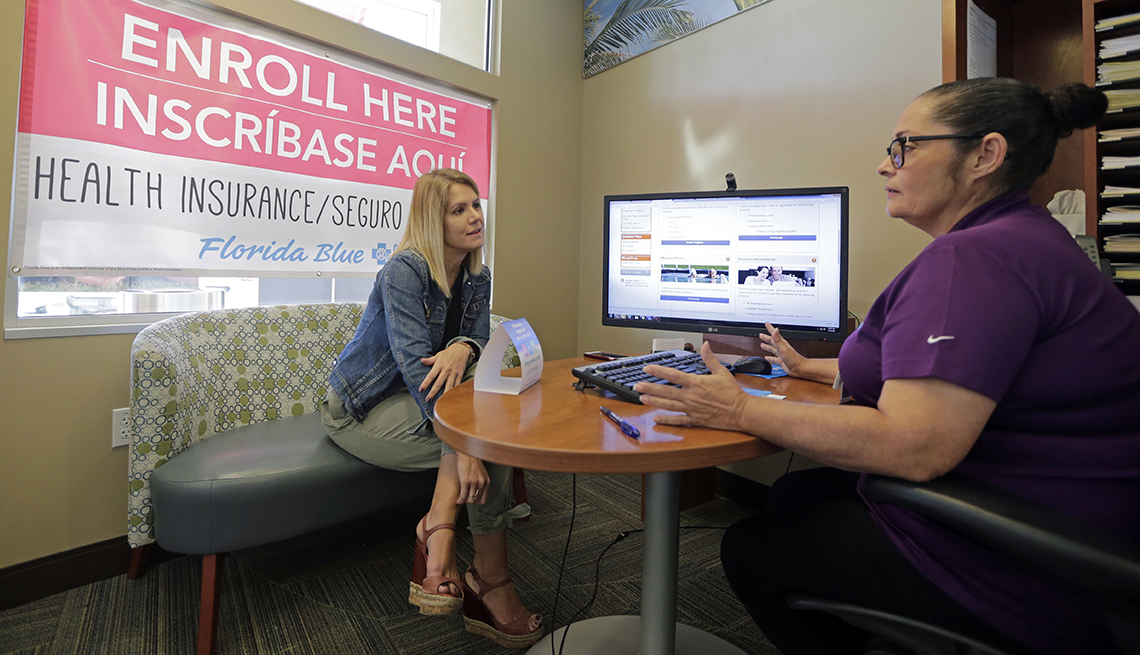Staying Fit
As millions of Americans review their Affordable Care Act (ACA) coverage and sign up or change their health insurance plans during open enrollment, scammers are also working to take advantage of consumers.
ACA open enrollment started Nov. 1 and ends in most states on Dec. 15. Officials at healthcare.gov and the Federal Trade Commission (FTC) are warning consumers to beware of fraudsters offering insurance deals that seem too good to be true — because they probably are.


AARP Membership— $12 for your first year when you sign up for Automatic Renewal
Get instant access to members-only products and hundreds of discounts, a free second membership, and a subscription to AARP the Magazine.
“One big scam, especially around open enrollment, is companies calling consumers offering online what they claim to be comprehensive health insurance,” says Jason Adler, assistant director of the FTC’s Midwest Region. “What they are actually providing is a discount plan or other substandard product that doesn’t give consumers the coverage they think they are getting.”
Here are four ways fraudsters try to get valuable personal information from you, or sell you phony or substandard health coverage.
1. The Cold Call
You get a phone call or an uninvited visit to your home from someone who says they are from the Health Insurance Marketplace (aka Marketplace) and need more information to finish your application, including your banking or credit card numbers.
What you should do: This is probably a scam. If you have applied for insurance through the Marketplace, you may get a follow-up call asking you to verify or provide more information. But you will never be asked for a bank name or account number. Here’s how healthcare.gov says you can make sure the call is legitimate:
- Use caller ID to check the number. The display should show one of these: Health Insurance MP; InsMarketplace; 855-997-1890 or 844-477-7500.
- The person calling is supposed to say they are from the Marketplace and give you his or her first name and agent ID number. Write this information down so you can later verify that they do work for the Marketplace.
Healthcare.gov suggests that if you are at all suspicious about any call, ask the representative to mail you a letter with instructions about how to complete your application. The website also has information about when and how you should report suspected fraud. If you have confirmed the person is a Marketplace representative, you might be asked the following questions to finish your enrollment:
- The caller may ask you to confirm what you put on your application, including your full name and address.
- They may also ask you to verify other information, such as your Social Security number, application ID, policy ID, user ID, date of birth or phone number.
- And, they may ask you to confirm income, and information about how many people are in your household and where you work.
Get expert tips and breaking news about health insurance, the ACA, Medicare and more.
2. The Fee for Help
You get a call from someone saying they are a navigator and can help you choose and apply for a Marketplace plan. They say they will charge a fee.
What you should do: Hang up the phone. The Marketplace has trained assisters in every state who can help you sort through the plans and answer questions, and these workers will do so free of charge. To find assistance near you, go to the local help section of healthcare.gov. You’ll be asked for your zip code. When the page for your area opens, you can decide if you only want to talk to a navigator or also want a list of agents or brokers in your area.

































































